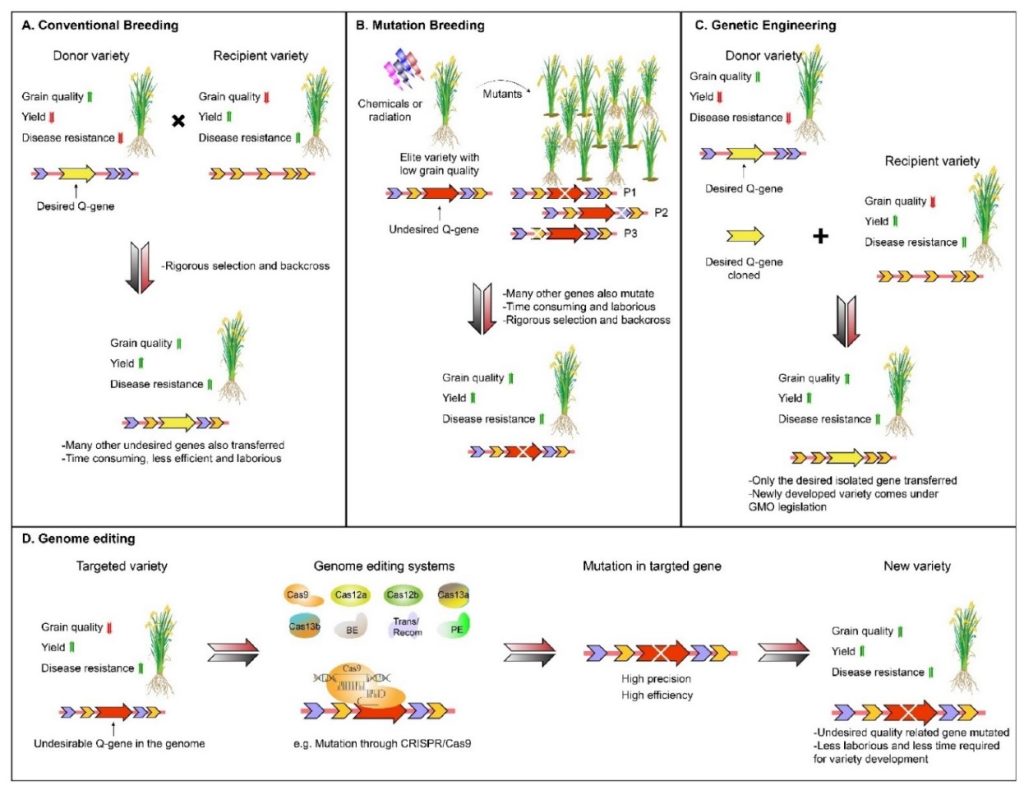KAMALA , a high yielding Samba Mashuri rice – A contribution to farmers by Indian Scientist

Indian scientists if given a free hand and quality support can do wonders making the world awestruck with their pioneer research in any fields. One of such pioneer works is the high yielding variety of Samba Mashuri rice with more than 485 grains per panicle which was achieved by genome editing. Our rice scientists have worked on nearly 84 versions of a gene for the desired yield of grain to be achieved. Their hard work and dedication has not only resulted in getting good grain number per panicle but also reduced the maturity duration of plant coupled with less water consumption and more suitable for Rabi season cultivation.
A brief explanation of various technologies used till now for rice variety improvement are there but Genome editing is very precise and accurate in achieving desired results as shown in the figure above (Image source: Tabassum, et al., 2021).
The use of CRISPR gene in genome editing is a breakthrough for developing target rice variety with desired traits. This methodology is highly efficient and precise through which transgene free plants can be developed without disturbing whole genome of the variety making the process ethically acceptable.
Dr.Satendra Kumar and his team at IIRR, Hyderabad were the major contributors for the developing ‘KAMALA’ variety genome edited rice line of Samba Mashuri rice an elite rice variety, through multiplex genome editing. Using CRISPR technology they edited Cytokinin oxidase -2 gene, which controls number of grains per panicle. This resulted not only in increase in grain number but additionally gave strong culm, earliness in production and cultivation of this developed variety is suitable in Rabi season too which is very much beneficial for farmers.
Dr. Satendra a senior scientist in Biochemistry department at IIRR Hyderabad has contributed his novel work to government of India so that farmers can be benefited with this variety. And if all approvals are given in time this variety will be commercialized in 2025-2026 which is a great benefit to farmer community.
For more information please visit:




